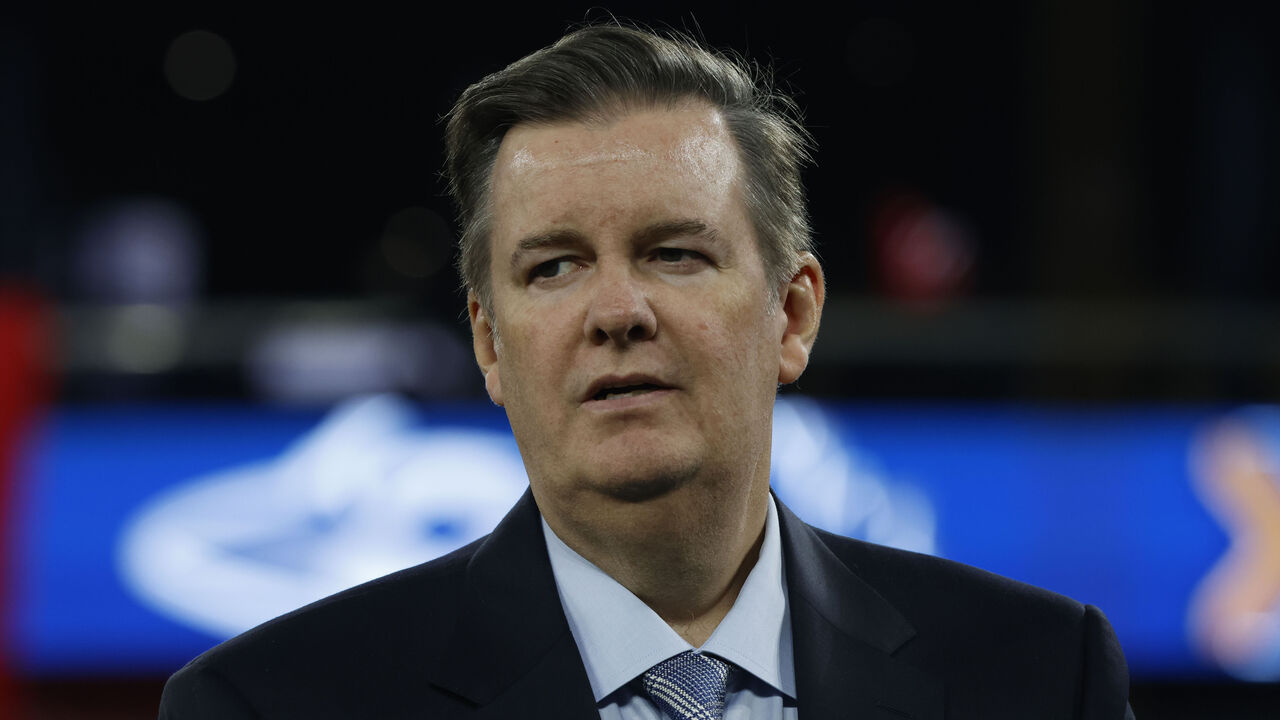MLSE's status quo worked pretty well. How will Rogers fare?
There's a lot of jargon in the official announcement that Rogers Communications agreed to buy Bell's ownership stake in Maple Leaf Sports & Entertainment, which would make Rogers the majority owner of all of Toronto's major sports teams. While the deal is far from complete, there's talk about debt leverage and regulatory approvals and "surfacing more value for shareholders long term."
Fans could be forgiven for thinking something much simpler: Uh oh.
In the 12 years since the telecom and media rivals became equal holders of 75% of the company, MLSE's trademark has been a tendency to make careful, reasoned decisions. Rogers and Bell have had to jointly sign off on significant deals, meaning minority owner Larry Tanenbaum couldn't join up with one or the other and force through the firing of a coach or the hiring of a new general manager.
That situation has its drawbacks, but it also means MLSE's board of directors has largely allowed the people who were put in charge of the franchises to run them. That approach brought smashing success for the Raptors, an equally impressive run for a Toronto FC club that's also fallen off in recent years, and plenty of on-field success for the Argonauts, even if the business remains a mess. The Maple Leafs, of course, remain one of sports' great mysteries, still unable to mount a credible Stanley Cup run even as they nailed a rebuild and acquired world-class talent.
There's been at least some degree of steady competence, even if not every decision has been great (no one is building a Mike Babcock statue outside Scotiabank Arena or painting a Jermain Defoe mural on the walls of BMO Field).
And then, for contrast, there are the Toronto Blue Jays. The baseball team has been fully owned by Rogers for two decades. For much of that time, it's been dogged by questions about whether the telecom giant's treatment of the franchise is befitting of a club in one of MLB's biggest markets.
To the extent that Rogers boss Edward Rogers ever got personally involved in running the Jays, it didn't go well: The team's biggest inflection point over the past decade was its failure to keep general manager Alex Anthopoulos when Rogers brought in Mark Shapiro as the new team president above him. That was the same process during which a Rogers lieutenant phoned Chicago White Sox owner Jerry Reinsdorf about hiring one of his executives to replace Jays president Paul Beeston, only to discover that Reinsdorf and Beeston were close friends. Ah, memories.
Anthopoulos has since built the Atlanta Braves into a powerhouse and won a World Series; Shapiro and his GM, Ross Atkins, are at risk of squandering what was supposed to be the Jays' carefully constructed competitive window.

It's been rumored over the years that Ed Rogers is a reluctant spender relative to his MLSE counterparts, whether it was the Leafs' giant contract to land Babcock or the long-delayed deal that made Raptors president Masai Ujiri one of the highest-paid executives in basketball. The counterargument is the Blue Jays of recent years: They've spent big on stadium renovations and payroll, even if playoff success hasn't followed.
The bigger concern for fans should be that Rogers won't spend wisely, not that it won't spend at all. The risk with any sports ownership arrangement controlled by a single entity is that it won't choose the right people to make key decisions. Some corporate owners hire smart people to run their teams, and some can't help but get personally involved. Again, the only true evidence of the Ed Rogers experience is the Blue Jays, where Shapiro was installed at the head of a playoff team nine years ago, oversaw an entire teardown and rebuild, and remains in charge (with Atkins), trying to salvage what remains of a roster that blew up spectacularly in 2024.
One could argue that Rogers has actually been too hands-off with the baseball team, especially if changes don't come after this season. Could Edward Rogers be Robert Kraft, who helped construct the Patriots dynasty by letting people who weren't Bob Kraft plan and run it? Yes. Could he be David Tepper, whose Carolina Panthers are 31-70 during Tepper's time as owner? Also yes.
The ray of hope for Toronto sports fans is that winning is good for business, and Rogers knows it. When the Jays finally returned to the playoffs at the height of the Anthopoulos era, business was booming, and the city was awash in Donaldson and Bautista jerseys. Every Rogers earnings call acknowledged that revenues in the media division were up due to the success of the baseball team.
It's good business for Rogers shareholders if Toronto's sports teams are successful. But it would also be good business for Rogers shareholders if the teams are just decent - and the hockey team doesn't even need to meet that standard.
At least if any of the teams crater in the coming years, fans will know exactly who to blame.
Scott Stinson is a contributing writer for theScore.